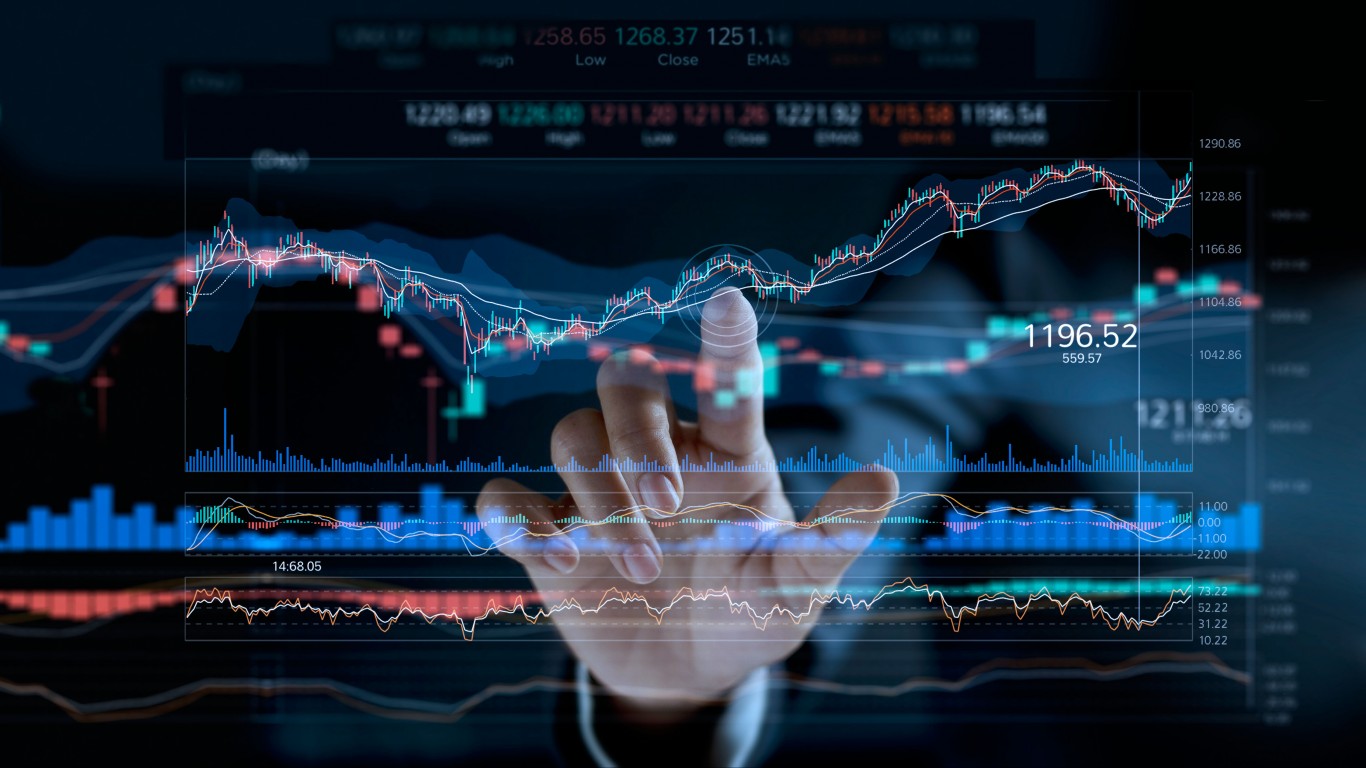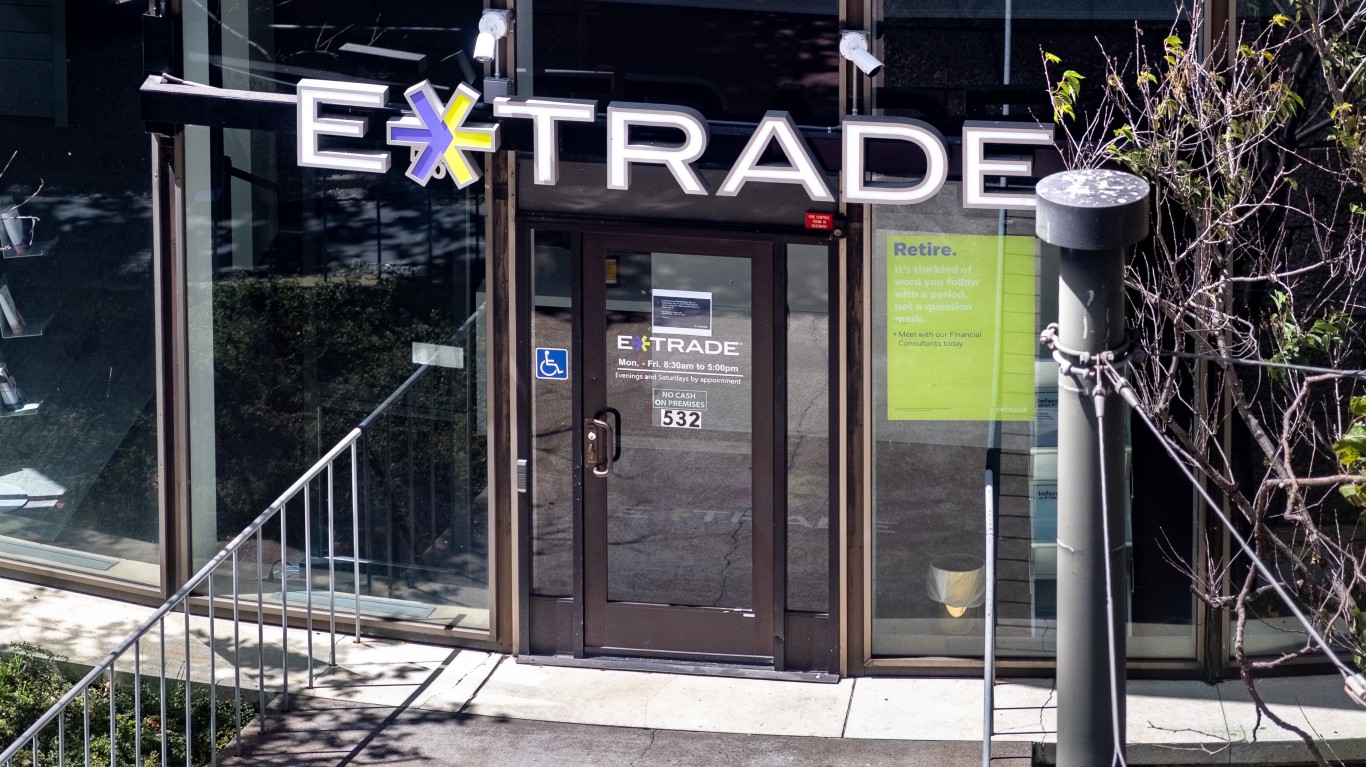
Feeling pressured to jump into the stock market but don’t know where to get started or what you’re doing? You’re not alone. For some reason, those who participate in the stock market, whether they’re successful or not, love to try to convince others to do the same. Many investment brokers and platforms know this, so they developed something known as robo-advisors.
But how can you take advantage of a robo-advisor, what do they do, exactly, and is E*Trade’s robo-advisor any good? We will answer all these questions and more as we dive into all the details.
Why Are We Talking About This?

It is unwise to do anything with money without knowing what you’re doing. Investing in your buddy’s new cryptocurrency idea without asking a couple of questions first? Bad idea. Throwing thousands of dollars into the stock market without doing a little bit of research? Another bad idea.
We don’t want to see you throw your money away. That’s why we encourage you to look into robo-advisors and use one if you’re not 100% sure about what to do with your money in the stock market. On the other hand, you can read our full E*Trade review here.
What is a Robo-Advisor?

Put simply, a robo-advisor is a fully digital, financial advisor that is able to give financial advice, recommendations, and investment strategy to customers with no actual human input.
While each robo-advisor is different and gives different kinds and levels of financial advice, they all operate in generally the same way: they collect data from a market and output a recommendation based on an algorithm or mathematical rules. Human financial advisors, data scientists, and other experts determine what these rules and algorithms should be, but once they are put into a robo-advisor, it does all the work by itself.
Robo-advisors can either just provide advice and recommendations, or automatically allocate and manage assets on behalf of their human clients. This can be for short-term day trading or long-term investments, depending on how the robo-advisor was designed and what the customer’s financial goals are. If your financial goals include a high-interest savings account, see E*Trade’s version here.
As of the writing of this article, there are over 100 robo-advisors that operate legally within the global financial system. They are still a relatively new feature in the financial world, with many people entering the markets at a lower cost and with more success due to their introduction. The first robo-advisor was launched in only 2008.
Humans are driven by emotion and often make mistakes, but robo-advisors will make sound decisions free from emotion or conflicts of interest and will make perfect recommendations based on the data they are given. Robo-advisors are also much cheaper to use, and have a higher profit margin than human advisors, especially for clients with relatively low amounts of wealth to invest or manage.
So, how do robo-advisors work? What will you go through when you sign up for one? First, your robo-advisor will ask you a series of questions to determine your risk tolerances, financial goals, and other parameters in which it should operate. Second, it will then begin to allocate your assets based on that risk tolerance in order to achieve a stated financial goal. Those goals can include investments in stocks, bonds, commodities, real estate, and futures, but most are tailored exclusively toward funds on public exchanges.
What is E*Trade’s Robo Advisor?

E*Trade’s robo-advisor platform is called Core Portfolios. And while it has a different name, it still operates as you would expect any robo-advisor to operate. Much like E*Trade’s new debit card, which you can read about here.
After your initial intake questionnaire, a team of financial experts and the robo-advisor will customize a plan that meets your financial goals while remaining within your risk parameters.
According to E*Trade, the Core Portfolios service includes a customized portfolio, active monitoring to rebalance any investments in order to keep you on track to meet your goals, 24/7 help and support, and a long-term, diversified investment strategy.
E*Trade’s Core Portfolios robo-advisor is designed to be entirely hands-off after the initial set-up. You can fund your account from an external account or from an internal E*Trade or Morgan Stanley (NYSE:MS) account. If you want someone to manage your investments for you but don’t want to pay the steep fees many advisors charge, then a robo-advisor like Core Portfolios might be the perfect choice for you.
However, unlike regular trades on the E*Trade platform, the Core Portfolios service is not free. There is an annual 0.30% charge on all the assets being managed this way. So, with the minimum balance of $500, the annual fee would be $1.50. There is no upper limit to how much you can invest and the rate remains the same across all account values for now. That means an investment of $50,000 would incur a $150 account fee every year. It might not be a lot, but it is still something that might come as a surprise if you are used to free trades.
Should You Use a Robo-Advisor?

Whether or not you should sign up for a robo-advisor service depends on a lot more than just your tolerances for letting an algorithm handle your money. Even E*Trade has a few helpful tips on what to consider before signing up.
First, you should consider the affordability of the service. Human advisors typically charge a few percentages of the account value every year to manage your money while a robo-advisor is much cheaper, yet it is still more than what you pay on commission-free trades by doing it yourself.
Second, you should consider the length of time you want to keep your investments. Most robo-investors are designed to see long-term gains and overcome short-term losses. This is especially true of E*Trade’s Core Portfolios service. If you want to trade quickly and learn the ropes of being a day trader, then a robo-advisor is definitely not the right choice for you.
Third, remember that robo-advisors usually work with pre-determined lists of assets and portfolios. While there might be different amounts of portfolios available with different robo-advisors, they usually fit into one of three categories: conservative portfolios, moderate portfolios, and aggressive portfolios. Depending on your age and financial goals, a robo-advisor might begin by investing your assets into an aggressive portfolio and slowly migrate to a conservative portfolio as you get older. However, the finer details of the investing and asset allocation are up to the algorithm, taking any fine-tuning out of your hands.
Finally, if you want to actually learn how to invest, hone your investment instincts, and be active in your financial future, then you should not use a robo-advisor. The algorithms will not explain any of the details or information it uses to make a recommendation, you simply have to trust it. There are plenty of self-help guides and articles on E*Trade itself to help you learn the ropes, and with no account fees, you can always get started with just a small account before you gain enough confidence to invest much more.
If you’re curious about any other part of the E*Trade platform, check out this page: a regularly updated list of all our E*Trade guides, news coverage, and lists of benefits.
Are You Still Paying With a Debit Card?
The average American spends $17,274 on debit cards a year, and it’s a HUGE mistake. First, debit cards don’t have the same fraud protections as credit cards. Once your money is gone, it’s gone. But more importantly you can actually get something back from this spending every time you swipe.
Issuers are handing out wild bonuses right now. With some you can earn up to 5% back on every purchase. That’s like getting a 5% discount on everything you buy!
Our top pick is kind of hard to imagine. Not only does it pay up to 5% back, it also includes a $200 cash back reward in the first six months, a 0% intro APR, and…. $0 annual fee. It’s quite literally free money for any one that uses a card regularly. Click here to learn more!
Flywheel Publishing has partnered with CardRatings to provide coverage of credit card products. Flywheel Publishing and CardRatings may receive a commission from card issuers.
Thank you for reading! Have some feedback for us?
Contact the 24/7 Wall St. editorial team.





